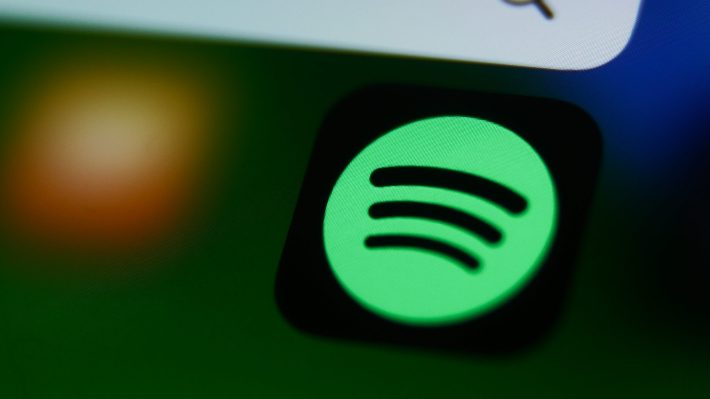
Spotify is gearing up to test Apple’s response to new European regulations designed to prevent so-called digital “gatekeepers” from engaging in anticompetitive practices.
The music-streaming giant has shared a bunch of mockups to illustrate what its iPhone and iPad app could soon look like, including information about pricing, subscription offers and in-app payments for iOS users in the EU — this is in response to the Digital Markets Act (DMA), which goes into effect on March 7.
The new rules prevent “anti-steering” practices, whereby the platform owner — in this case Apple — prevents app developers from informing their users about alternative payment or subscription options. And the DMA also has provisions for preventing gatekeepers from requiring developers to use their own payment services.
Apple has yet to communicate exactly how it will respond to the new DMA rules, so Spotify’s announcement today is in some ways theoretical given that Apple still controls the platform and it might have a few tricks up its sleeve to make life difficult for companies looking to exploit the DMA’s provisions.
Spotify said that it will reveal what features will be available later. Plus, it admitted that how much of the vision the company can achieve will depend on Apple’s compliance.
However, Spotify is hopeful — it has presented a dreamy vision where users can easily switch plans, buy individual audiobooks, and allow users to download Spotify either from alternative app stores or through sideloading.
“For years, even in our own app, Apple had these rules where we couldn’t tell you about offers, how much something costs, or even where or how to buy it. We know, pretty nuts. The DMA means that we’ll finally be able to share details about deals, promotions, and better-value payment options in the EU,” Spotify said in a blog post.
We have asked Spotify if it actually plans to roll out any of the features described in the mockups on March 7 — we will update the story if we hear back.
In an interview with The Verge, Gustav Gyllenhammar, Spotify’s vice president of markets and subscriber growth said that if the company’s envisioned changes go through, it will be able to offer new experiences in verticals like podcasts.
“The way that podcasting as we know it really started growing on iOS has always had these restrictions … You haven’t been able inside of the app to upsell to gated content, exclusive content, and enhanced content,” he told the publication.
In the last few years, Spotify has canceled various shows and laid off workers from many teams including podcasting. However, unions consisting of these workers have said that Spotify’s leadership directly contributed to the low number of podcasts that were canceled.
Spotify has been in a public tryst with Apple for a while now. It stopped offering iOS users an option to buy subscriptions from the app in 2016. Last year, Spotify even canceled legacy subscriptions managed through the App Store.
Last year, during the Epic v Google trial, an executive at the search giant admitted that Spotify paid 0% commission to Google if the streaming service used its own payment system.
Apple has faced regulatory scrutiny in many regions such as the Netherlands, South Korea, Japan, and most recently the U.S. While the company has taken measures like allowing in-app promotions for subscriptions and the use of alternative payment processors, it typically gives 3-4% discount on the App Store fee for digital purchases.

